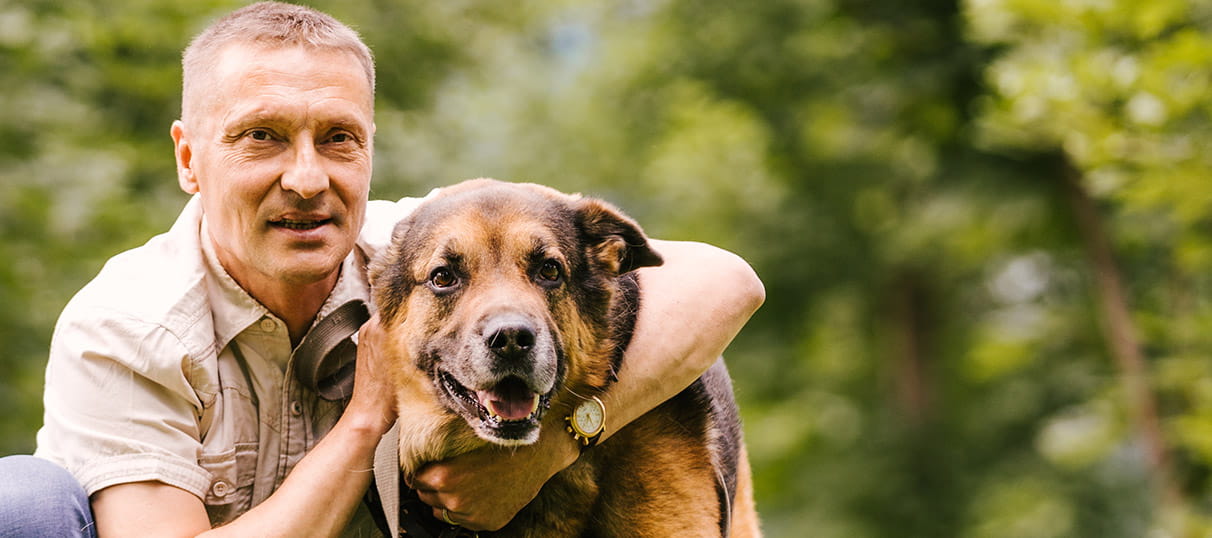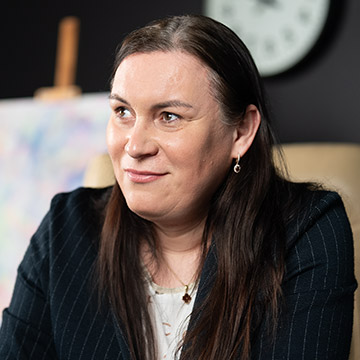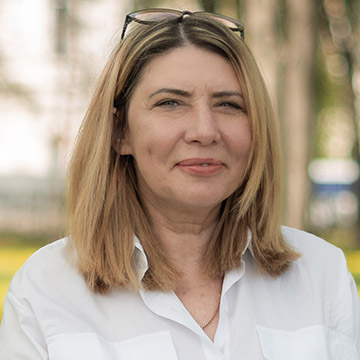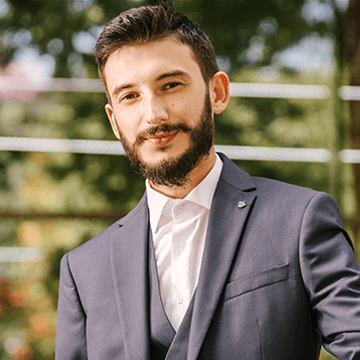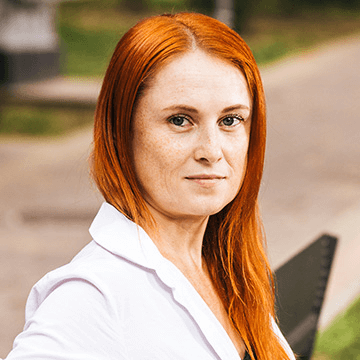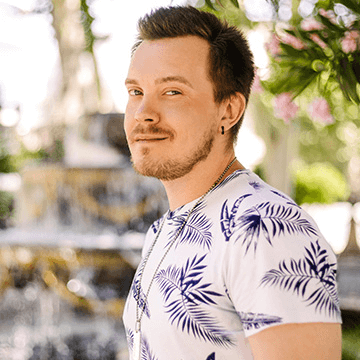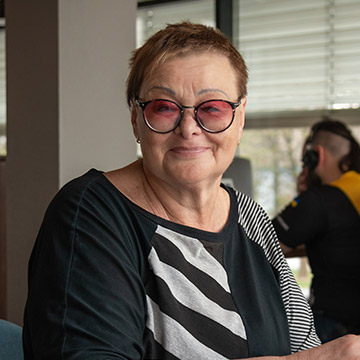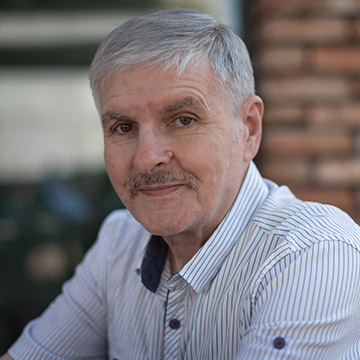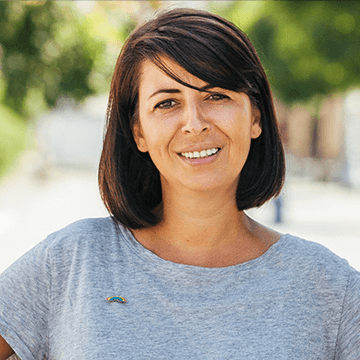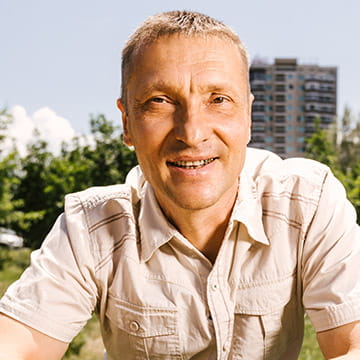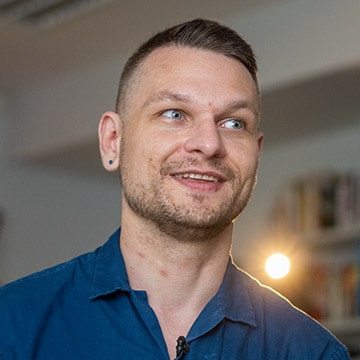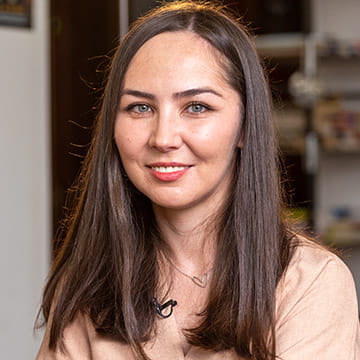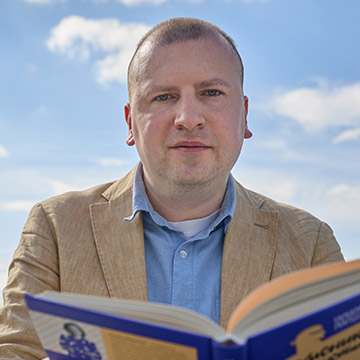Boris's STORY
Almaty, Kazakhstan
In 2011, Boris reluctantly attended a self-help group for people living with HIV. To his surprise, he found an open and welcoming community there, and developed a routine of attending and eventually leading the classes:
“Things developed from there, and international organisations began inviting me to undergo more formal training and speak at public events.”
Now, Boris works with medical practitioners, community organisations, and regional health authorities to help newly diagnosed people living with HIV to begin accessing care and provides crucial social support, such as housing and applications for identification documents.
A common challenge for Boris and his colleagues is access to treatment, largely due to inequality, stigma, and discrimination that people living with HIV face. Boris recalls his experience with a newly-diagnosed young woman who had pre-existing health issues that required surgery. The private medical centre she was registered with refused to operate due to her HIV status, so she approached Boris’s organisation for support. Boris and the team intervened by contacting the head physician at the centre, who admitted that occasionally there are cases when new employees refuse to operate on people who are HIV-positive, but assured him that training is carried out on an ongoing basis to mitigate these instances. Following this, with Boris’ help, she was promptly admitted and treated via the State Centre for Human Reproduction, in an operation that likely saved her life.
Given the frequency of these instances, Boris explains: “It is a common theme for people with HIV to stop visiting the doctor for all health concerns due to their concern that their HIV status will be ‘found out’ and they will be refused any form of medical treatment. Sometimes you meet people who cannot even say the words ‘HIV’ or ‘AIDS’ out loud.”
Stigma and discrimination are major drivers of the HIV epidemic in EECA, particularly among young people who are sexually active. Boris explains his experience with this: “Often people have never taken a HIV test in their life, simply due to the perceived shame of a positive HIV result.” In addition to challenges with testing and prevention, Boris and his organisation work to address difficulties with adhering to treatment: “Many people are not compliant with treatment. They either do not seek treatment at all, or they receive drugs from their doctor, but do not take them.”
The process of accepting my HIV diagnosis was a long journey. It wasn’t until seven years after I found out about my HIV status that things began to change for the better.
As of now, Boris is alarmed by the fact that, despite the availability of testing and treatment, HIV infections continue to rise in the EECA region. This is why Boris believes programmes like RADIAN, that support organisations to address HIV, are so crucial.
Despite the severity of the HIV epidemic in EECA, Boris has hope for the future: “The difference in attitudes today compared to ten years ago is evident. A lot of work is being done by non-governmental organisations to train medical personnel, and many patients themselves are aware of their rights, and the options that are available.”
With the help of Revanche, barriers for people living with HIV accessing public services are being broken. Boris notes a time when the organisation was approached by a disabled person who was refused access to rehabilitation services by two medical centres on the basis that other residents could contract HIV from him. The case was taken to the Ministry of Labour and Social Protection and Boris, who managed the case, provided personal support to the individual affected and ensured the court and ministry had all relevant documentation that made clear that there was no risk of HIV transmission. Ultimately, the individual was accepted onto a rehabilitation programme; another example of how, case by case, Boris and the organisation are significantly improving the lives of people living with HIV.
In Boris’ ideal world, HIV will be a thing of the past: “A key step in getting there is to remove stigma and discrimination, so that society treats people living with HIV like people with any other chronic condition.”
The impact of RADIAN on Boris’ work
RADIAN supports a consortium of local organisations in Almaty, Kazakhstan as part of the RADIAN Model Cities initiative, to help end the HIV epidemic in Almaty as a model for other cities in the EECA region. In 2020, there were 5,200 people living with HIV, with prevalence more than double the national average.1
The Revanche Foundation provides community-based health and social services to people living with HIV and other vulnerable communities, such as people who use drugs.
With funding and mentorship from RADIAN, Boris and Revanche are able to help clients in precarious legal situations due to their HIV status. They also connect people to prevention services, rehabilitation programs and conduct HIV testing for key populations, and link patients who have tested positive to treatment and care facilities.
-
1.
Kazakh Scientific Center of Dermatology and Infectious Diseases – 2020 Report: Available at: http://kncdiz.kz/files/00007836.pdf [Accessed: November 2022]



